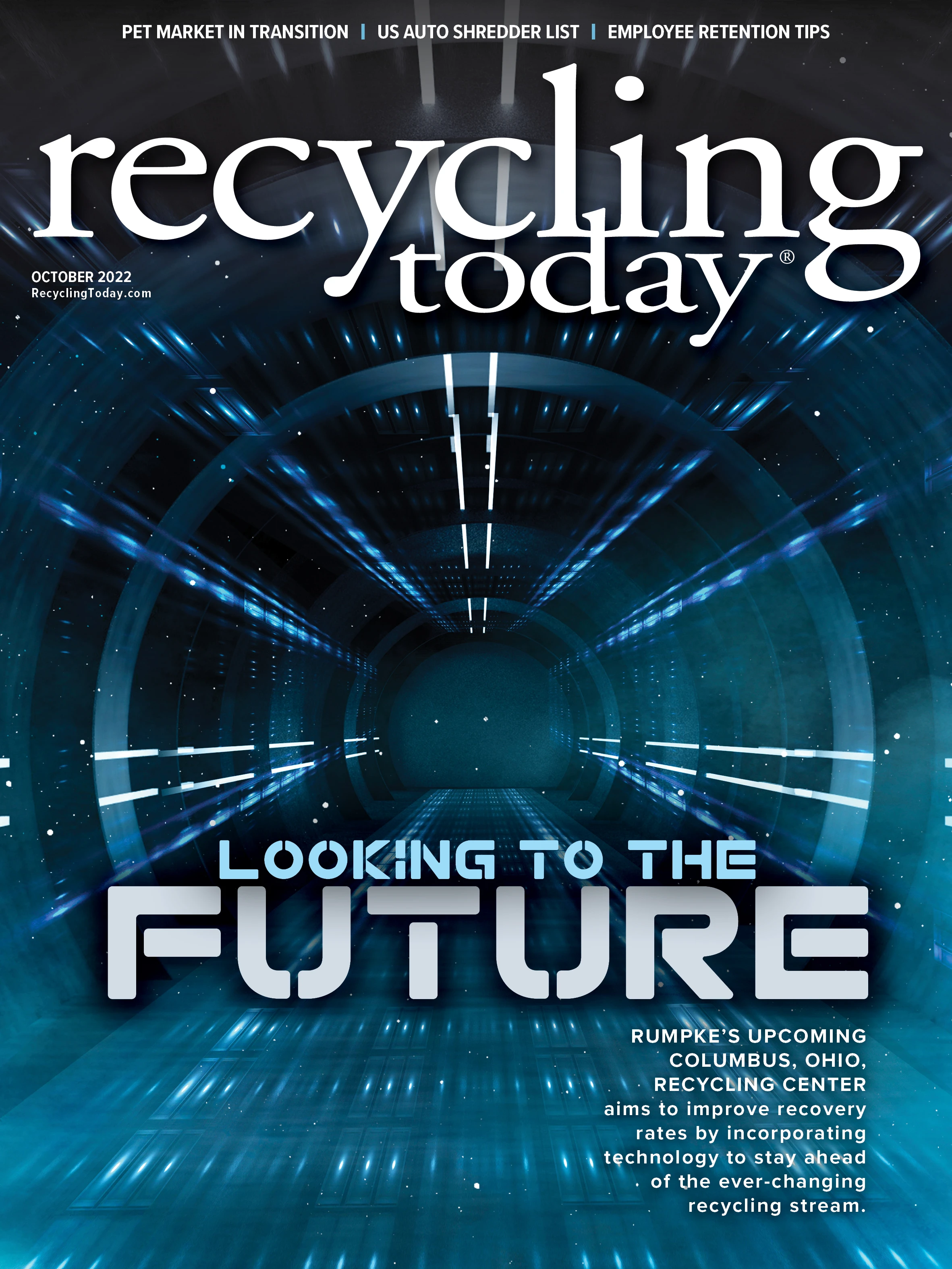
Evergreen completes expansion of Ohio facility
Evergreen, a supplier of food- and nonfood-grade recycled polyethylene terephthalate (rPET), has finished its building and production expansion at its facility in Clyde, Ohio.
The expansion began in 2021 as a $22 million project with three lines and evolved because of increased customer and consumer demand for rPET. The 54,000-square-foot addition originally included four extrusion lines with the ability to expand to six, and Evergreen tells Recycling Today it already has ordered the additional two extrusion lines for the Clyde site. The two lines add an additional 27 million to 30 million pounds of capacity, giving the facility an annual capacity of up to 173 million pounds.
The expansion was made possible in part by American Beverage Association and the Ohio Beverage Association, in partnership with Closed Loop Partners, as part of a $5 million investment under the beverage industry’s Every Bottle Back initiative. Evergreen says the investment helped it evolve its business model, expand its services to process rPET into food-grade recycled rPET pellets used to manufacture new bottles and create a strong local market for recycled plastics.
“The team at Evergreen and our partners, Ohio Beverage Association and Closed Loop Partners, are looking forward to sharing this expansion project with our customers and community,” Evergreen CEO Omar Abuaita says. “With the financial and strategic support of The Sterling Group, we can respond to the demands of the consumer through growth and innovation and are preparing to share a first-of-its-kind industry announcement soon.”
The expansion has added 20 manufacturing and management jobs in the Sandusky County region. Evergreen employs 350 manufacturing workers, managers and organizational leaders across four locations in North America: Clyde; Riverside, California; Albany, New York; and Amherst, Nova Scotia.
“We’re excited to support Evergreen’s expansion, which will help Ohio’s beverage companies reduce our use of new plastic and keep our 100-percent-recyclable plastic bottles out of the environment,” says Kimberly McConville, executive director of the Ohio Beverage Association. “Our industry is committed to using more recycled content in our containers, and Evergreen’s bold leadership will help ensure our bottles get remade as intended.”
APR report provides policy recommendations to improve plastic recycling
The Association of Plastic Recyclers (APR), Washington, has issued a report on the progress of plastic recycling in the United States that compiles research and analysis from across the $236 billion recycling industry, including more than 9,000 community recycling programs and more than 100 postconsumer recyclers. The report, titled “Recommit, Reimagine, Rework Recycling,” finds that plastic recycling is responsible for more than 200,000 U.S. jobs and is a scalable solution for reducing plastic waste.
The APR says the report presents an important clarification on data provided by the U.S. Environmental Protection Agency (EPA) on recycling rates, explaining that 80 percent of rigid plastic packaging is made from either polyethylene terephthalate, high-density polyethylene or polypropylene. According to the APR report, 21 percent of these types of plastic are recycled based on EPA data. However, according to the EPA’s 2018 figures, the latest available, the overall plastic recycling rate was only 9 percent. The APR notes that the EPA’s statistics “include containers, packaging and durable goods meant to last many years as well as nondurable goods not intended for recycling, like garbage bags.”
Misleading data such as the EPA figure discourage Americans who support recycling, the APR says.
The report concludes that meeting high demand for recycled plastics will require companies to manufacture plastic products and packaging that are compatible with recycling, consumers to put recyclables in the recycling bin and a robust recycling infrastructure to collect, sort and process that material.
To achieve these ends, the APR’s report provides policy recommendations such as ensuring all new products and packaging are compatible with recycling; increasing and strengthening community recycling programs and harmonizing the types of plastic that are collected; and encouraging the consideration of the true cost of disposal and the low costs to landfill.
Get curated news on YOUR industry.
Enter your email to receive our newsletters.

Explore the October 2022 Issue
Check out more from this issue and find your next story to read.
Latest from Recycling Today
- Fenix Parts acquires Assured Auto Parts
- PTR appoints new VP of independent hauler sales
- Updated: Grede to close Alabama foundry
- Leadpoint VP of recycling retires
- Study looks at potential impact of chemical recycling on global plastic pollution
- Foreign Pollution Fee Act addresses unfair trade practices of nonmarket economies
- GFL opens new MRF in Edmonton, Alberta
- MTM Critical Metals secures supply agreement with Dynamic Lifecycle Innovations





